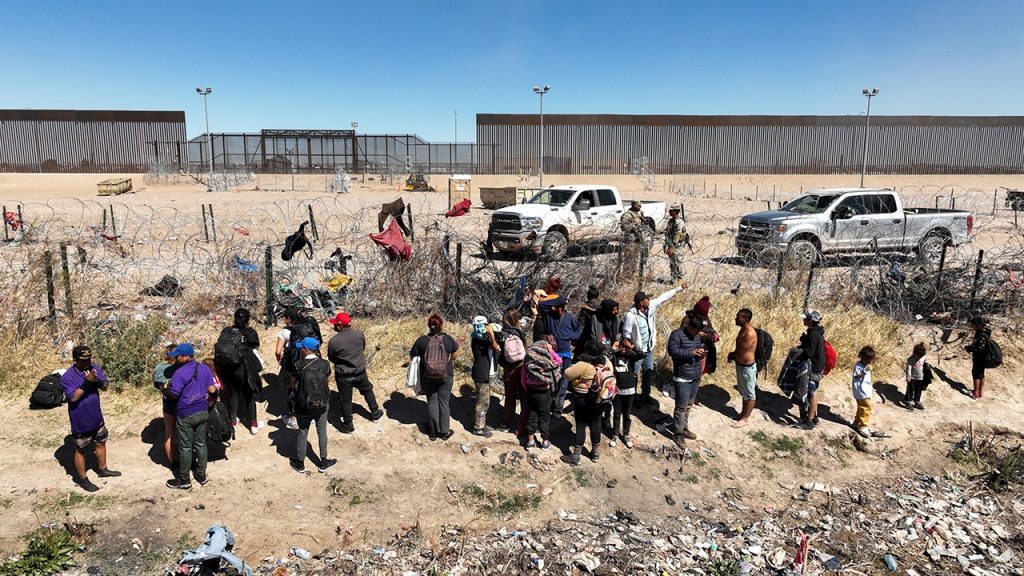The recent $1.2 trillion spending bill passed by Congress and signed into law by President Biden includes significant funding earmarked for border security in several Middle Eastern countries, such as Jordan, Lebanon, Egypt, Tunisia, and Oman. Some Republicans have criticized this allocation as wasteful, especially at a time when there is ongoing debate over how to best secure the U.S. southern border. The bill, which also includes funding for defense and homeland security among other agencies, has sparked significant conservative opposition despite garnering bipartisan votes in both houses of Congress to avert a government shutdown.
Amidst a historic migrant crisis at the U.S. southern border, the Biden administration has called for the passage of a bipartisan border funding bill negotiated earlier this year. This bill includes additional funding for staffing, technology, support for NGOs and communities receiving migrants, and a temporary mechanism to stop entries if migrant encounters exceed 5,000 a day. However, conservatives argue that this bill would only normalize already excessive levels of illegal immigration. The Biden administration and Democrats view the current situation as a hemisphere-wide crisis that requires funding and systemic reform to address the broken immigration system.
Republicans have pointed to the Biden administration’s reversal of successful Trump-era policies, such as border wall construction, the Remain-in-Mexico policy, and broader interior enforcement, as the root cause of the current crisis at the southern border. In response, House Republicans have passed their own border security and asylum bill, H.R. 2, which seeks to provide additional funding for border wall construction and implement reforms to limit entries into the interior of the United States. The debate over how to secure the border and address the influx of migrants has been at the forefront of political discussions in Congress, with both parties offering differing solutions and viewpoints on the issue.
The inclusion of funding for enhanced border security in Middle Eastern countries in the spending bill has raised concerns among Republicans, who see it as diverting resources away from securing the U.S. southern border. The bill’s passage has also prompted internal disagreements within the GOP, with Rep. Marjorie Taylor Greene filing a motion to vacate Rep. Mike Johnson as House speaker, accusing him of betraying the confidence of the House GOP Conference by supporting the legislation. The bill was ultimately passed to prevent a government shutdown, but the controversy surrounding its provisions and implications for border security remains a point of contention within Congress.
The Biden administration, Democrats, and Republicans all agree that the current situation at the U.S. southern border constitutes a crisis that requires urgent action. However, there is a lack of consensus on how best to address the issue, with differing approaches and priorities among the political parties. While the administration pushes for bipartisan funding and systemic reform to manage the influx of migrants, conservatives argue for a return to previous policies and increased border security measures. The ongoing debate over border security and immigration policy reflects broader ideological divisions within Congress and highlights the challenges of addressing complex and multifaceted issues like migration and border control.


